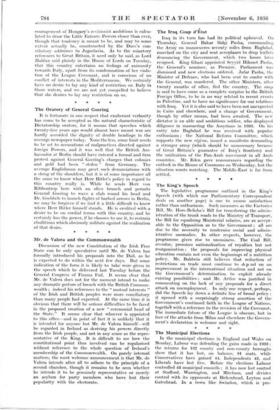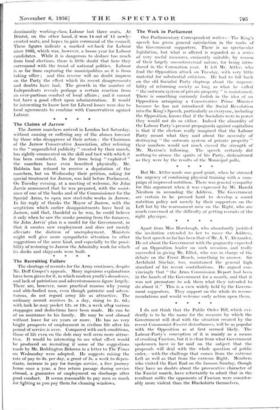The Municipal Elections In the municipal elections in England and
Wales on Monday, Labour was defending the gains made in 1933 : the returns for 132 county and non-county boroughs show that it has lost, on balance, 81 seats, while Conservatives have gained 44, Independents 42, and Liberals have lost five. Before the elections Labour controlled 43 municipal councils ; it has now lost control at Stafford, Warrington, and Mitcham, and divides control with its opponents at Birkenhead, Leyton and Gateshead: In a . town like- Swindon, which is pre= dominantly working-class, Labour lost three -seats. At Bristol, on the other hand, it won 14 out of 15 newly- created seats, and hopes to gain command of the council. These figures indicate a marked set-back for Labour since 1933, which was, however, a boom year for .Labour candidates. While it is dangerous to deduce too much from local elections, there is little doubt that here they correspond with the trend of national politics. Labour is as far from capturing the municipalities as it is from taking office ; and this reverse will no doubt impress on the Party the effect which its recent disagreements and doubts have had. The growth in the number of Independents reveals perhaps a certain reaction from an over-partisan conduct of local affairs ; and it cannot but have a good effect upon administration. It would be interesting to know how. far Liberal losses were due to local agreements to combine with Conservatives against Labour.















































 Previous page
Previous page